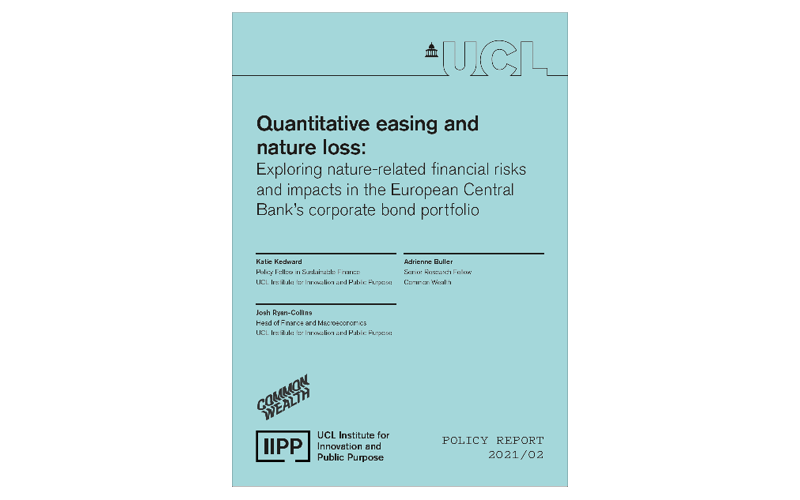Quantitative easing and nature loss
In this report, Katie Kedward, Josh Ryan-Collins and Adrienne Buller explore the nature-related financial risks and impacts in the European Central Bank's corporate bond portfolio.

23 July 2021
UCL Institute for Innovation and Public Purpose (IIPP) policy report: 21-02
This report explores the interactions between nature-related financial risks and monetary policy, focusing on the ECB’s corporate asset purchase operations (also described as corporate ‘quantitative easing’ or ‘QE’). Using the ENCORE framework, we find that the sectors the ECB is invested in are associated with significantly high dependencies upon nature to facilitate production, as well as contributing to significantly negative impacts upon nature which threaten the future provision of vital ecosystem services. As a major central bank and holder of 20% of euro-denominated corporate bonds, the ECB’s approach to managing nature-related risks within its portfolio will have considerable signalling power to financial markets and could have a material impact on the uptake of prudent risk management practices relating to nature.
Authors
- Katie Kedward | Policy Fellow in Sustainable Finance, UCL Institute for Innovation and Public Purpose
- Adrienne Buller | Senior Research Fellow, Common Wealth
- Josh Ryan-Collins | Head of Finance and Macroeconomics, UCL Institute for Innovation and Public Purpose
Reference
Kedward, K., Buller, A. and Ryan-Collins, J. (2021). Quantitative easing and nature loss: exploring nature-related financial risks and impacts in the European Central Bank’s corporate bond portfolio. UCL Institute for Innovation and Public Purpose, IIPP Policy Report (IIPP 2021/02). Available at: https://www.ucl.ac.uk/bartlett/public-purpose/pr21-02
 Close
Close

